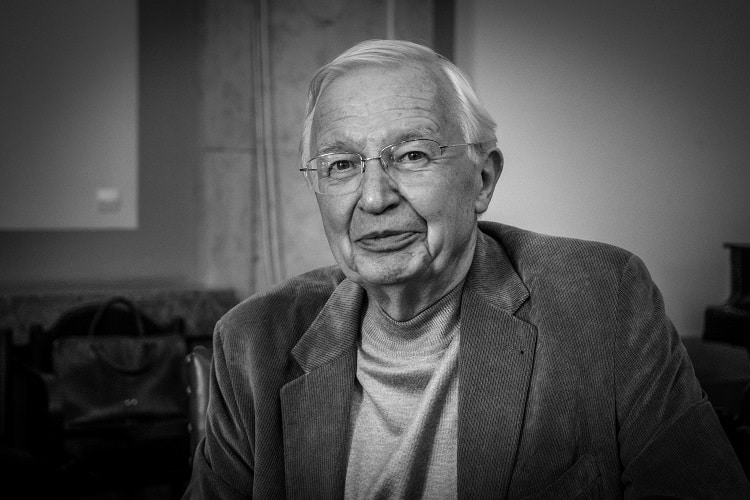Jean Marie Lehn is a French chemist. Lehn was awarded the Nobel Prize in Chemistry.
Life and Career
Jean Marie Lehn was born on 30 September 1939, in Rosheim, France. Lehn showed an early interest in science and pursued his passion by studying chemistry at the University of Strasbourg.
He completed his Ph.D. in chemistry in 1963 under the guidance of Charles Diederich, focusing on the chemistry of strained organic compounds.
Lehn’s groundbreaking work came in the area of supramolecular chemistry, which explores the interactions between molecules and the formation of non-covalent molecular assemblies. Lehn was awarded the Nobel Prize in Chemistry, along with Donald J. Cram and Charles J. Pedersen, for their achievements in the field of host-guest chemistry and the synthesis of molecules with highly selective binding properties.
His pioneering research laid the foundation for the development of molecular machines and nanotechnology, with potential applications in drug delivery, materials science, and more.
Jean-Marie Lehn continued to be an influential figure in the scientific community, actively contributing to research and mentoring young scientists. He remained engaged in scientific pursuits until his retirement.
Throughout his career, Lehn held various academic positions, including professorships at the University of Strasbourg and the Collège de France.
Award and Legacy
Lehn was awarded the Nobel Prize in Chemistry, jointly with Donald J. Cram and Charles J. Pedersen, for their groundbreaking work on host-guest chemistry and the design and synthesis of molecules with highly selective binding properties.
He received various other awards, including the Davy Medal from the Royal Society of London.
Lehn’s pioneering work in supramolecular chemistry fundamentally changed the way scientists think about molecular interactions. His research laid the foundation for the development of molecular machines, smart materials, and nanotechnology.
Throughout his career, Lehn was an enthusiastic educator and mentor, inspiring and guiding numerous young scientists. His passion for science and dedication to teaching left an indelible mark on the next generation of chemists.
His innovative approach to chemistry and molecular design has led to practical applications in drug delivery systems, catalysis, and the development of new materials with unique properties.
Lehn’s work transcended national boundaries, and he was widely recognized and respected in the global scientific community, contributing to the international reputation of French chemistry.

